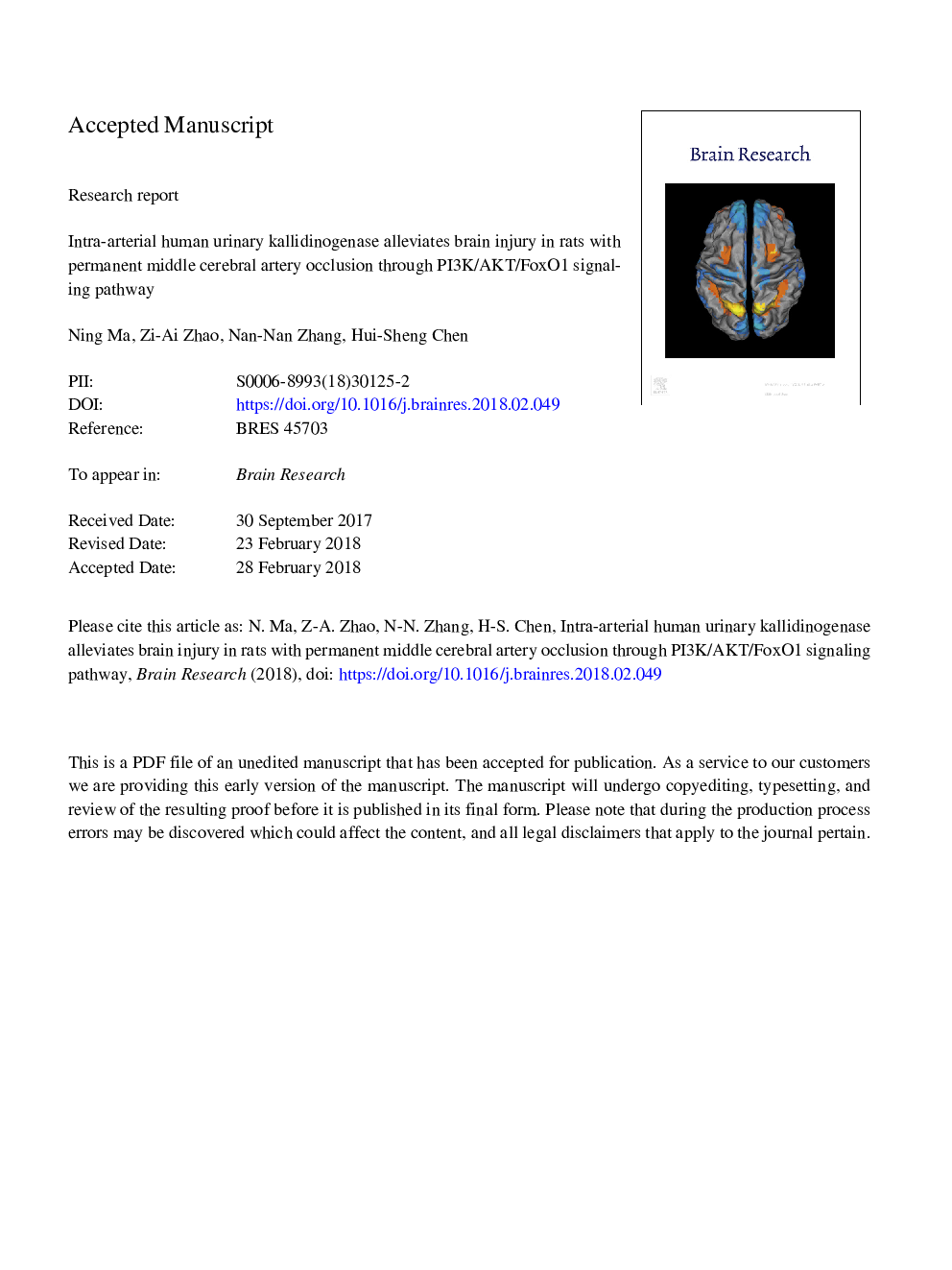| Article ID | Journal | Published Year | Pages | File Type |
|---|---|---|---|---|
| 8839822 | Brain Research | 2018 | 26 Pages |
Abstract
An urgent need exists to develop intra-arterial treatment for acute ischemic stroke in animal study. This study aimed to explore the beneficial effects of intra-arterial administration of human urinary kallidinogenase (HUK) on brain injury after permanent middle cerebral artery occlusion (pMCAO) in a rat model, and the potential underlying molecular mechanisms. Brain injury induced by pMCAO was evaluated through measuring neurological deficit scores, neuropathological changes, and inflammatory factors. Neurological deficits were observed 24â¯h after pMCAO and were alleviated by intra-arterial HUK treatment obviously. Inhibition of PI3K by LY294002 blocked the beneficial effect of HUK on neurological functions. In contrast to the pMCAO group, the intra-arterial HUK treatment group showed relatively more regularly arranged neurons and fewer pyknosis. Neurodegeneration, necrosis, infarct area and markers for brain injury were all ameliorated by intra-arterial HUK treatment. Moreover, a lower expression of inflammatory factors including interleukin (IL)-1β, IL-6, and tumor necrosis factor (TNF)-α, and a higher expression of IL-10 were observed in the intra-arterial HUK treatment group than that in the pMCAO group. Additionally, when comparing with pMCAO group, a lower level of caspase-3, bax, and apoptotic rate, and a higher level of bcl-2, p-PI3K, p-AKT and p-FoxO1were observed in the pMCAOâ¯+â¯HUK group. These results suggest that intra-arterial administration of HUK is a promising therapeutic strategy against pMCAO induced brain injury, and PI3K/AKT/FoxO1 signaling pathway may be involved in this process.
Related Topics
Life Sciences
Neuroscience
Neuroscience (General)
Authors
Ning Ma, Zi-Ai Zhao, Nan-Nan Zhang, Hui-Sheng Chen,
